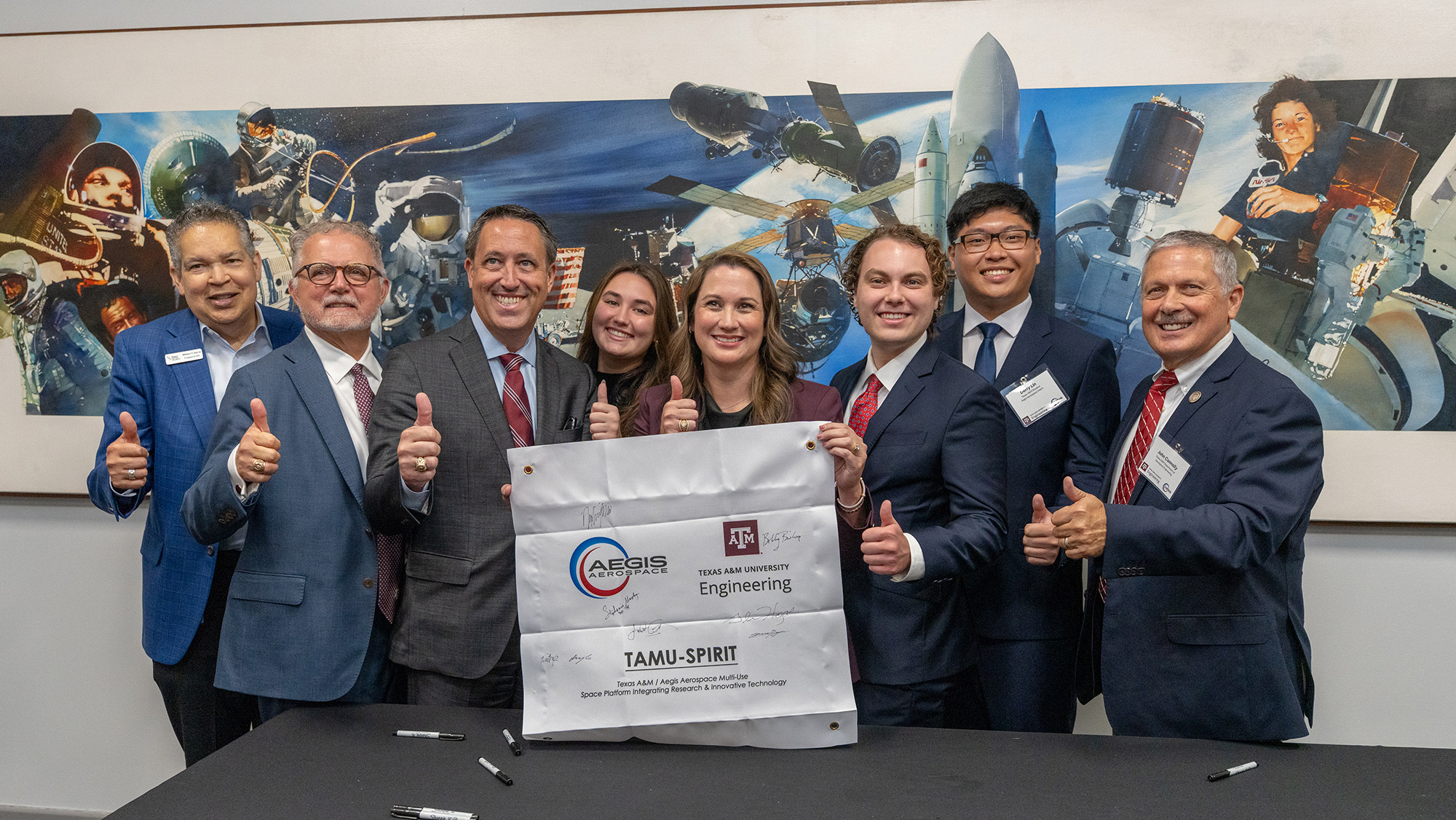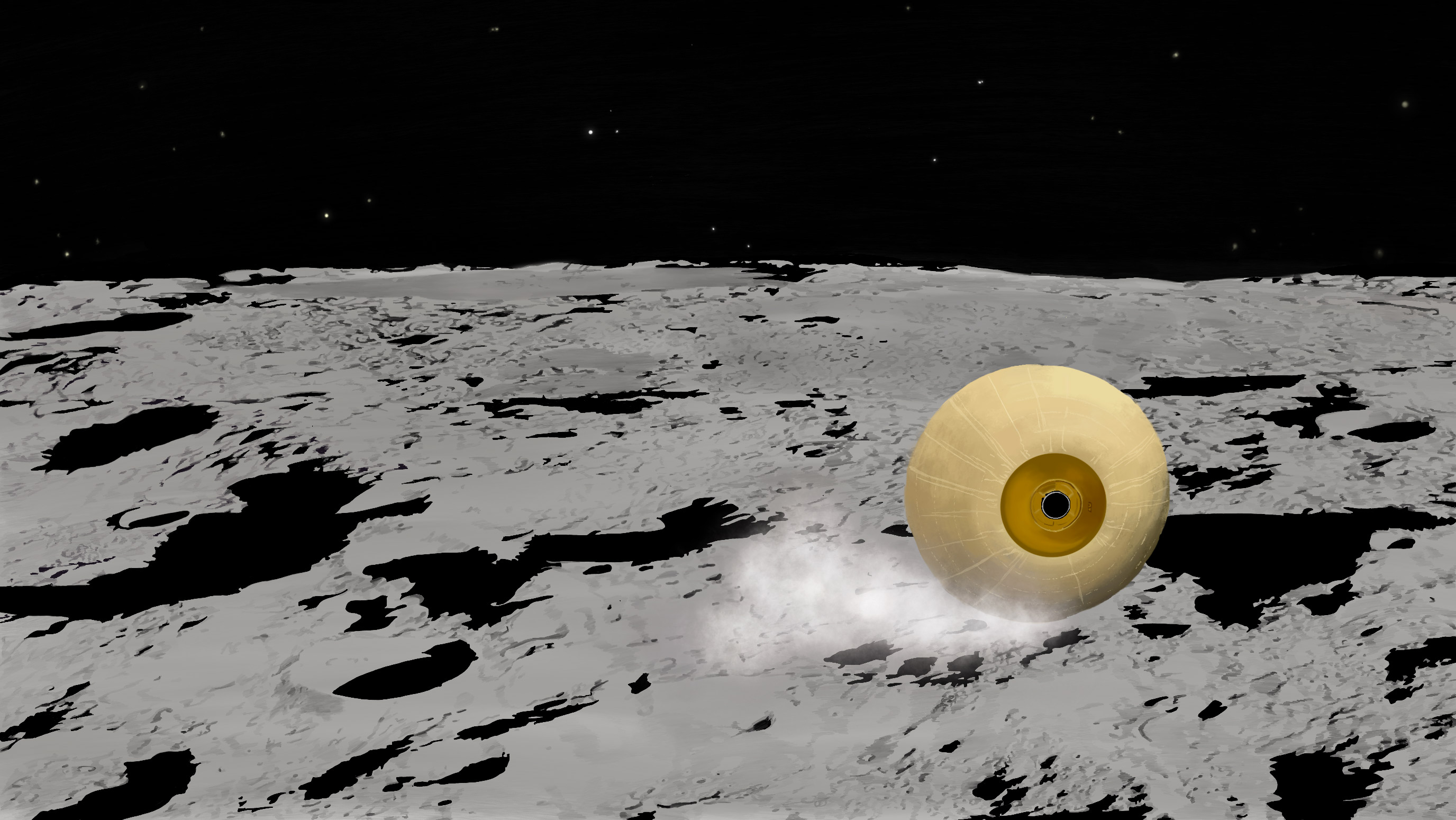About Space Engineering
Space engineers enable humanity to explore, reside and thrive in space and on other celestial bodies, including the utilization of space to ensure space security.
We are dedicated to advancing space exploration and technology. Through interdisciplinary collaborations, our research positions Texas A&M at the forefront of space innovation and technological developments, from next-generation space robotics to virtual reality for long-duration missions to radiators that combat the moon’s extreme temperatures. Our collective efforts are shaping the future of space exploration.
Educational Opportunities
Our new Master of Engineering in space engineering will equip students to tackle the challenges of space exploration, habitation and sustainability on other celestial bodies while also supporting national defense through advanced space technologies. The 30-credit-hour program includes specialized tracks in bioastronautics, space robotics and space communications.
The college also offers the Human Systems Integration and Bioastronautics graduate certificate program to prepare engineering, human physiology and medical professionals to address the growing challenges of civil and commercial human spaceflight.
Building for the Future
Texas A&M has been a space-grant university since 1989 and continues to lead space initiatives today. The university is embarking on a groundbreaking initiative to construct a state-of-the-art Space Institute adjacent to the Johnson Space Center. This $200 million investment from the Texas Legislature aims to propel space exploration forward by providing cutting-edge simulation environments for lunar and Martian terrain.
Centers and Labs
- Advanced Vertical Flight Laboratory
- Aerospace Human Systems Laboratory
- Aerospace Laboratory for Lasers and Electromagnetics and Optics (ALLEMO)
- AeroSpace, Technology Research & Operations (ASTRO) Center
- AggieSat Lab
- Bioastronautics and Human Performance
- Hypervelocity Impact Laboratory
- Land, Air and Space Robotics Laboratory
- National Aerothermochemistry and Hypersonics Laboratory (NAL)
- Systems Engineering, Architecture and Knowledge (SEAK) Lab



